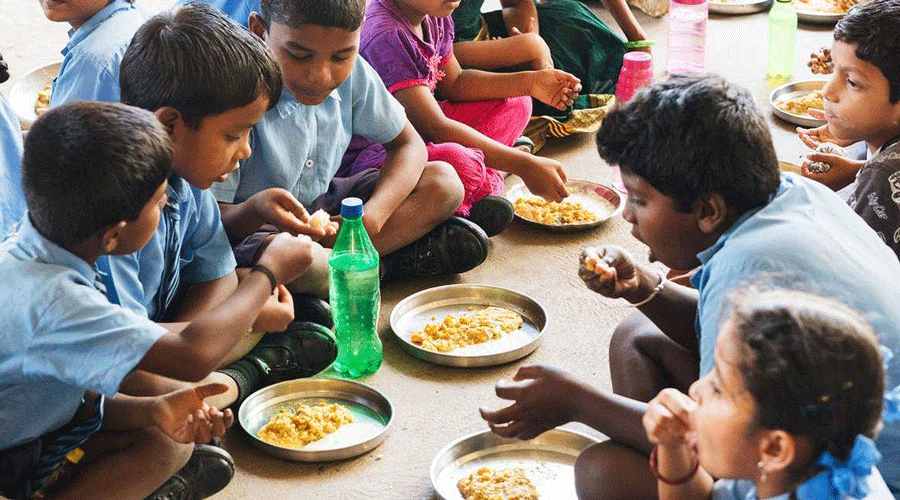Beef and chicken are set to return to the midday meals for Lakshadweep’s schoolchildren, with the Union Territory administration on Friday ordering all schools to comply with a two-month-old Supreme Court order restoring meat to the menu.
The archipelago administration had banned meat from the midday meals sometime after Praful Khoda Patel — a former Gujarat home minister under then chief minister Narendra Modi — took over as the administrator in December 2020.
This was one of several unpopular reforms undertaken by Patel’s administration that prompted accusations that he was imposing an RSS agenda and provoked protests on the Muslim-majority islands.
In June 2021, Kerala High Court granted an interim stay on the meat ban on a petition from Ajmal Ahmed, a lawyer and native of Lakshadweep, an archipelago of 36 islands, ten of them inhabited.
The high court said that food “including meat, chicken, fish and other items” should be continued with as in the past.
But on an appeal from the Lakshadweep administration, a division bench of the high court in September 2021 ruled there was no “arbitrariness or illegality” in the decision to modify the midday meal menu. Ahmed then appealed to the Supreme Court, which on May 2 reinstated meat to the menu.
Lakshadweep’s schools, now into their third month of regular physical classes after the Covid-induced closures, currently serve fish and eggs but not meat to their students.
Lakshadweep district panchayat member Asif Ali of the Nationalist Congress Party told The Telegraph on Saturday that the islanders welcomed the Supreme Court decision. He said the administration should not have waited more than two months since the ruling to issue the notification.
“By banning beef and chicken the administration had gone against our food habits. We are all so happy with the Supreme Court order,” he said.
“But we will not rest until the administration rolls back all the reforms that have affected the people and their livelihoods.”
Among the administration’s unpopular decisions was the rampant demolition of sheds used by fishermen to park their boats and store their fishing nets — on the ground that these stood on government land.
Patel’s administration has also brought in a stringent anti-gangster law, seen as a ploy to crack down on dissent in a place with near-zero crime.
Further, the administration has opened up the ecologically sensitive coral islands for large-scale tourism projects, ignoring warnings from environmentalists and marine experts.
One of the administration’s latest decisions was to reduce the number of ship services to Kerala, on which the islands depend heavily for healthcare, higher education and trade.
The administration has in a media statement claimed that of the five ships that operated to and from Kochi, two are undergoing repairs. It has added that special vessels had been operated for Haj pilgrims and students who wanted to take various exams on the mainland.
Residents who have held protest marches have been booked widely for violating Covid protocols and a ban on assemblies.
Lakshadweep collector and secretary for information and public relations, S. Asker Ali, has in a media statement said some people were spreading “false and fabricated information” and had been booked “to maintain peace and tranquillity and to prevent commission of cognisable offences”.
An all-party initiative, Save Lakshadweep Forum, has been spearheading the protests against the administration.











